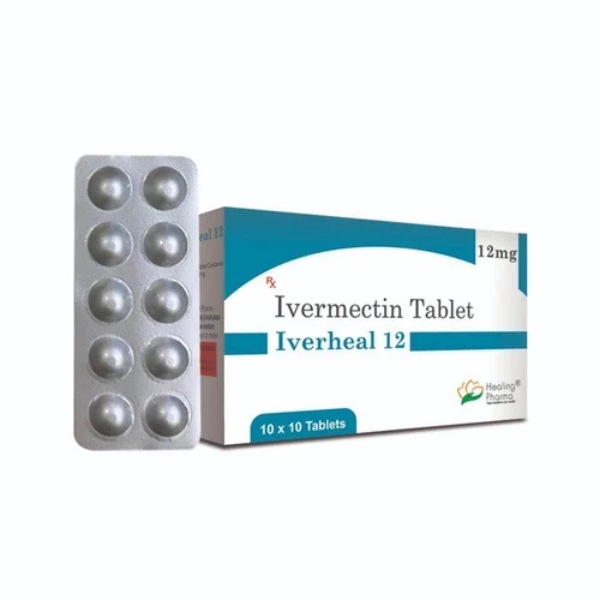What Is Ivermectin and What Is It Used For?
Introduction
When people hear the name ivermectin, they often think of a medicine surrounded by debate, but before the controversy it was already an essential drug in modern healthcare. For decades, ivermectin has been trusted for its effectiveness against a wide range of parasitic infections in both humans and animals.
The story of ivermectin is one of scientific discovery, life-saving treatments, and later global attention during the COVID-19 pandemic. Understanding what this drug is, how it works, and what it is actually used for can help you separate fact from speculation and use reliable information to make safe health choices.
What Is Ivermectin?
Ivermectin is an antiparasitic medication first introduced in the late 1970s and later approved for human use in the 1980s. It belongs to a class of drugs known as antiparasitics, which target parasites that invade the human body and cause disease. The drug is derived from compounds called avermectins, discovered in soil microorganisms in Japan. This breakthrough led to a Nobel Prize in medicine for its discoverers, highlighting its enormous impact on global health.
For human use, ivermectin comes in oral tablet form and topical formulations, such as creams or lotions. The oral tablets are usually prescribed for internal parasitic infections, while the topical cream is used for skin conditions like rosacea. Veterinary medicine also uses ivermectin, but the dosages and formulations are very different from human medicine, and they should never be confused.
How Does Ivermectin Work in the Body?
The way ivermectin works is straightforward but powerful. Parasites depend on nerve and muscle signals to survive. Ivermectin disrupts these signals by binding to specific channels in the parasite’s nerve and muscle cells. This causes paralysis and eventually death of the parasite. Because of its selectivity, ivermectin can attack parasites without harming human nerve cells when taken at approved doses.
This mechanism of action explains why the drug is effective against a wide spectrum of parasites, including worms, lice, and mites. It also explains why safety guidelines are critical. Too much of the drug or the wrong formulation could interfere with human cells, which is why medical supervision is always necessary.
Approved Medical Uses of Ivermectin
Over the years, ivermectin has gained approval for several conditions. Doctors prescribe it primarily for parasitic infections that are common in tropical and developing regions but can occur worldwide.
Ivermectin for Onchocerciasis
Onchocerciasis, commonly called river blindness, is caused by a parasitic worm transmitted through blackfly bites. Ivermectin has played a central role in reducing cases of this disease across Africa and Latin America. By targeting the larvae of the worm, ivermectin reduces the spread of infection and prevents blindness.
Ivermectin for Strongyloidiasis
Strongyloidiasis is another parasitic infection caused by intestinal worms. Ivermectin is one of the most effective treatments because it clears the worms quickly and reduces the chances of reinfection.
Ivermectin for Scabies
Scabies is a skin condition caused by mites that burrow under the skin and cause intense itching. Ivermectin tablets are sometimes prescribed when topical creams do not work or when outbreaks occur in large communities, such as nursing homes.
Ivermectin for Rosacea
In addition to its role in parasitic infections, ivermectin cream is approved for treating rosacea, a chronic skin condition characterized by redness and bumps on the face. By reducing inflammation and killing skin mites associated with rosacea, ivermectin cream improves skin appearance and comfort.
Off-Label and Investigated Uses
Like many medicines, ivermectin has also been studied for uses beyond its official approvals. During the COVID-19 pandemic, it became widely discussed as a possible antiviral drug. Some early laboratory studies suggested it might inhibit the replication of certain viruses, including the coronavirus. However, large clinical trials did not confirm its effectiveness against COVID-19. Major health organizations, including the FDA and WHO, have cautioned against using ivermectin for COVID-19 outside of research settings.
Off-label use is not new in medicine, but it is always important to rely on strong scientific evidence. Taking ivermectin without medical advice, or using veterinary versions designed for animals, can cause serious side effects and toxic reactions.
Side Effects and Safety Profile
Like all medicines, ivermectin is not without risks. Common side effects may include dizziness, nausea, or mild skin rash. Most side effects are temporary, but in rare cases severe reactions can occur, especially when the drug is not used as prescribed.
Neurological effects, such as confusion or seizures, have been reported in cases of overdose. Because the liver processes ivermectin, patients with liver problems should be cautious. Drug interactions with other medications, particularly those that affect liver enzymes, may also increase the risk of side effects.
The key to safety is correct dosing under medical supervision. The dosage depends on factors like body weight, the specific infection being treated, and whether the drug is being used orally or topically.
Why Ivermectin Remains Important in Global Health
Despite controversies, ivermectin continues to be one of the most important antiparasitic drugs in the world. It has helped millions of people in regions where parasitic infections are a serious public health issue. Mass drug administration campaigns using ivermectin have nearly eliminated diseases like river blindness in some countries.
For skin conditions such as rosacea, it offers relief to patients who struggle with chronic symptoms. Its ability to improve quality of life and prevent serious disease highlights why it remains on the World Health Organization’s list of essential medicines.
Conclusion
Ivermectin is far more than a topic for debate. It is a well-established medicine with proven benefits in treating parasitic infections and certain skin conditions. Understanding what it is and how it works helps cut through confusion and ensures patients and healthcare providers use it safely and effectively.
While ongoing studies explore new potential uses, the drug’s current role in human medicine is clear. It protects against harmful parasites, provides relief for chronic skin conditions, and stands as a reminder of how medical discoveries can change millions of lives.
By knowing the facts and avoiding misinformation, you can appreciate ivermectin for what it truly is: a powerful tool in the fight against parasitic disease and a trusted medicine when used responsibly.
FAQs
Q1: What is ivermectin used for in humans?
Ivermectin treats parasitic infections like river blindness, strongyloidiasis, scabies, and rosacea.
Q2: Is ivermectin safe for humans?
Yes, when prescribed by a doctor at the correct dosage. Misuse or animal formulations are unsafe.
Q3: Can ivermectin treat COVID-19?
No, major studies show it is not effective for COVID-19 treatment. Health authorities advise against it.
Q4: What are common side effects of ivermectin?
Mild nausea, dizziness, or skin rash may occur. Severe side effects are rare but possible with misuse.
Q5: How does ivermectin work in the body?
It paralyzes and kills parasites by disrupting their nerve and muscle function without harming human cells at safe doses.



